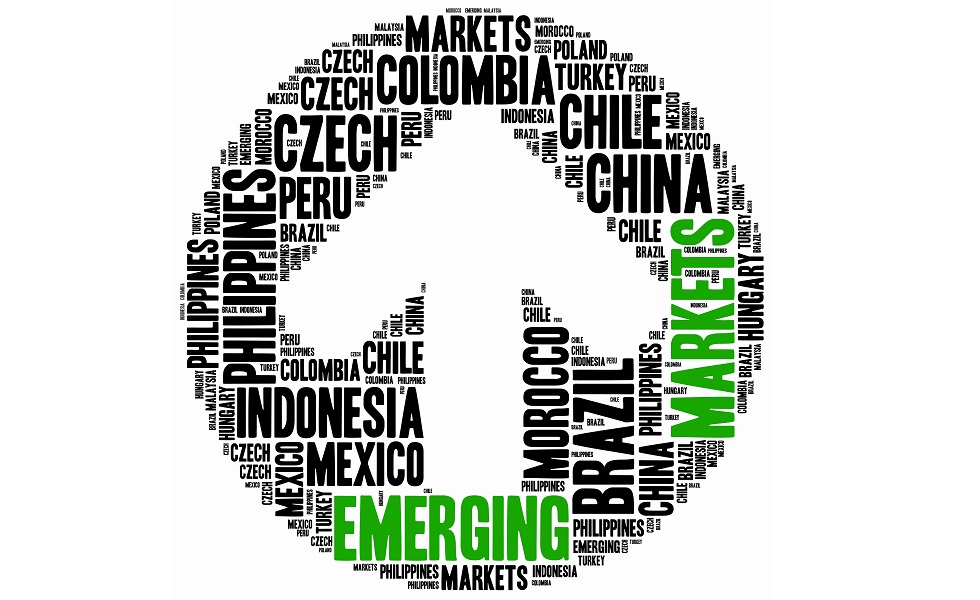NeoXam: Will momentum behind emerging markets be another false start?
NeoXam: Will momentum behind emerging markets be another false start?

By Sarva Srinivasan, Global Head of Strategy & Managing Director Americas, NeoXam
A closely watched survey from Bank of America, found fund managers are now overweight in emerging markets. Part of a widely predicted trend – that investors will reduce their allocations towards US assets and seek to diversify geographically – the survey is convincing evidence that the wheels of change are turning.
But how fast can they travel though? That depends on how prepared asset managers are to push change, not just in the decision-making front-office, but also the engine-rooms of the back-office. There is a very real case to be made for emerging market assets right now, against a backdrop of low or stagnant growth in western economies. Valuations of US companies are also coming under fire from a range of analysts as they touch record highs. This is leading to a reassessment of emerging markets, with inflows into emerging market ETFs booming. However, not every road leads to juicy returns – particularly if the focus is extended beyond solely the front-office.
All roads lead to the regulator
The move to increase investment in emerging markets presents a major operational challenge that may not have been fully considered. Take a UK-based asset manager as an example. It will principally have to report to its home regulator (in this case the FCA), but it doesn’t stop there. Investment into emerging markets require vastly increased regulatory reporting requirements, such as continuous reporting, which may prevent asset managers from proceeding down this pathway to profit.
These can include ownership thresholds, beneficial ownership information, trade-level reporting, and a range of other requests. Typically, this is done through the asset manager’s custodian bank, which will be approved for market access by the regulator of the emerging market. However, the asset manager will need to provide its custodian bank with the necessary information to comply with ongoing disclosures, and maintain a rigorous, reconciliated internal record. More managers are therefore having to navigate dual compliance when they expand their investment markets: reporting at home, as well as providing the right data to custodians abroad.
All this cross-border reporting risks the creation of heavily fragmented datasets, including information related to trades, ownership, reconciliations, and exceptions. Custodians require timely accurate inputs from the fund manager. If the manager’s own systems are siloed or manual, it can cause delays in communicating critical information.
Unfortunately, the industry’s back-offices are running on diesel when they should be looking to go electric. The prevailing way of doing things is badly outdated, with information scattered across spreadsheets, supported by largely manual processes that depend on specialist knowledge from employees in the fund manager’s back-office. This presents a clear issue for further reallocation from US markets into emerging markets – it can prevent asset managers from engaging with these markets in a profitable and sustainable way.
A different path
If asset managers are to successfully diversify away from US markets and take advantage of the potential undervaluation of emerging markets, they must propel their back-offices down a different path – one characterised by automation and modernisation. If they can deploy automated regulatory reporting solutions, backed by AI-powered reconciliation platforms, it will allow their back-office teams to efficiently report all necessary information to their custodians, and subsequently to the national regulators.
This requires solutions that can centralise, automate, clean and match all relevant data, eliminating manually matching and checking trades for multiple regulators and custodians. This would significantly reduce the chance of mismatches derailing investment operations. If these capabilities can be coupled with automated regulatory reporting capabilities, it creates a system where both the fulfilment and distribution of these regulatory reports become reliable, consistent, and efficient.
If asset managers are to successfully pivot their investment direction and reap the rewards on offer in emerging markets, they need to make sure their whole organisation is ready, not just the front-office. Otherwise, this trend could simply be another false start for emerging markets.









